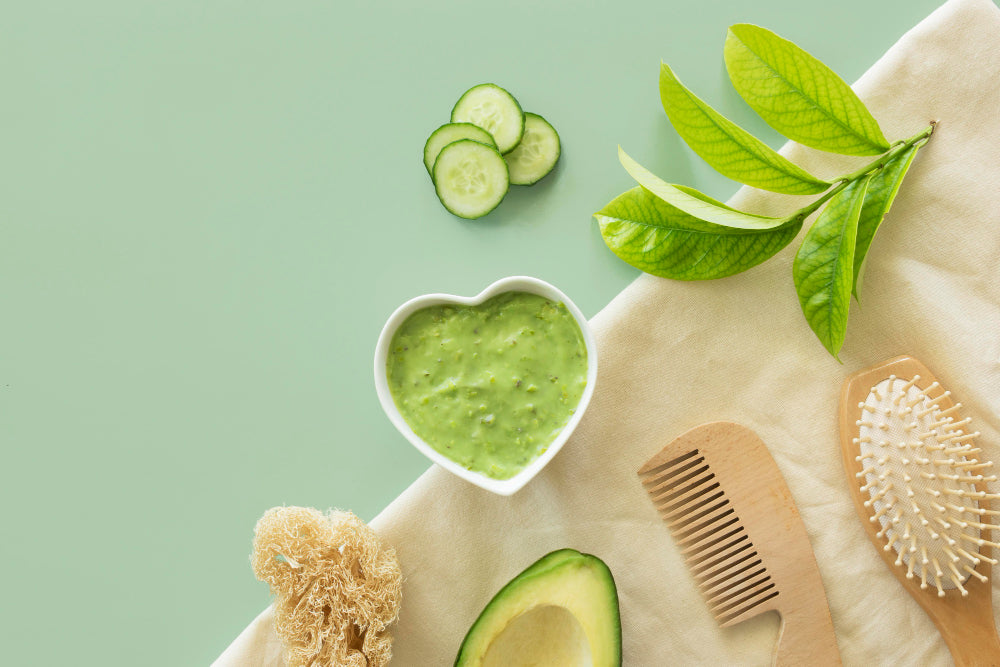The skincare aisle is full of buzzwords—vegan, organic, clean, natural—but what do they actually mean? If you’re trying to choose products that align with your values and skin needs, understanding the distinction between vegan and organic is essential. While both appeal to conscious consumers, they address entirely different priorities.
This guide breaks down the definitions, standards, benefits, and limitations of each—so you can make informed choices without the confusion.
What Does “Vegan” Skincare Mean?
Vegan skincare contains no animal-derived ingredients and is not tested on animals.
Key Points:
- Excludes: Honey, beeswax, lanolin, collagen (from animals), carmine (crushed beetles), squalene (from shark liver), keratin, gelatin, and more.
- Allows: Plant-based oils, butters, waxes (like candelilla instead of beeswax), synthetic alternatives, and lab-grown actives.
- Cruelty-free status: Most vegan brands are cruelty-free, but vegan ≠ cruelty-free. Always check for a Leaping Bunny or PETA certification.
Example: A moisturizer with shea butter and jojoba oil is vegan. One with honey or lanolin is not—even if organic.
What Does “Organic” Skincare Mean?
Organic skincare is made with ingredients grown without synthetic pesticides, herbicides, GMOs, or chemical fertilizers.
Key Points:
- Focuses on farming practices, not animal ingredients.
- Certifications matter: Look for USDA Organic, ECOCERT, COSMOS, or Soil Association seals.
-
Percentage rules:
- “100% Organic” = all ingredients (except water/salt) are organic.
- “Organic” = at least 95% organic ingredients.
- “Made with Organic Ingredients” = at least 70%.
- Can include animal-derived ingredients if organically raised (e.g., organic beeswax, organic milk).
Example: A cream with organic beeswax and organic olive oil is organic—but not vegan.
Vegan vs. Organic: Side-by-Side Comparison
| Criteria | Vegan | Organic |
|---|---|---|
| No animal ingredients | Yes | No (can include organic honey, beeswax, etc.) |
| No animal testing | Usually (check label) | Not required |
| Pesticide-free farming | Not guaranteed | Yes |
| Certified standards | No universal cert (brand claim) | Yes (USDA, ECOCERT, etc.) |
| Environmental focus | Animal welfare | Soil health, biodiversity |
| Skin safety | Varies | Generally cleaner (fewer chemicals) |
Can a Product Be Both Vegan and Organic?
Yes—and that’s the gold standard for many.
A product labeled "certified organic and vegan" means:
- All plant-based ingredients are organically grown.
- No animal-derived components.
- No synthetic pesticides or GMOs.
These are ideal for sensitive skin, eco-conscious routines, and ethical values.
Benefits of Each Approach
Why Choose Vegan Skincare?
- Ethical alignment: Supports animal rights and cruelty-free innovation.
- Hypoallergenic potential: Avoids common allergens like lanolin or carmine.
- Inclusive: Safe for plant-based lifestyles.
Why Choose Organic Skincare?
- Fewer toxins: Reduces exposure to pesticide residues linked to irritation and long-term health concerns.
- Higher nutrient density: Organically grown plants often have more antioxidants and vitamins.
- Eco-friendly: Promotes sustainable agriculture and soil regeneration.
Common Myths Debunked
| Myth | Truth |
|---|---|
| “Vegan means natural” | Not true. Vegan products can contain synthetic fragrances, silicones, or petroleum derivatives. |
| “Organic means vegan” | False. Organic honey, beeswax, and milk are allowed. |
| “All natural skincare is organic” | No. “Natural” is unregulated—organic requires certification. |
| “Vegan products are always cruelty-free” | Mostly, but not guaranteed. Check certifications. |
How to Spot Truly Clean Products
- Read the full ingredient list—avoid “fragrance/parfum” (hides chemicals).
-
Look for dual certifications:
- Vegan: Vegan Society, Certified Vegan logo
- Organic: USDA, ECOCERT, COSMOS
- Prioritize transparency—brands should list sourcing and testing policies.
- Patch test—even clean ingredients can cause reactions.
Who Should Choose What?
| Your Priority | Best Choice |
|---|---|
| Animal rights + ethics | Vegan (cruelty-free certified) |
| Chemical-free, sensitive skin | Organic (USDA/ECOCERT) |
| Both ethics + purity | Vegan + Organic |
| Budget-friendly clean beauty | Start with vegan (easier to find affordable) |
The Bottom Line
Vegan and organic are not interchangeable—they solve different problems:
- Vegan = no animal harm
- Organic = no synthetic chemicals in farming
The most effective, skin-kind choice? Products that are both—free from animal ingredients and grown sustainably. These deliver clean, potent actives without compromise.
Ready to upgrade your routine? Start by auditing one product: check if it’s truly vegan, certified organic, or both. Your skin—and your values—deserve the clarity.
Follow us on Instagram @activeearthorganics for clean skincare tips and transparent ingredient breakdowns.
